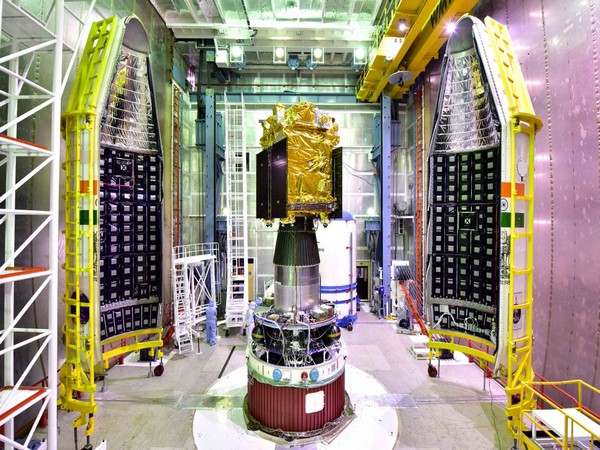India’s first solar mission Aditya-L1 spacecraft completed its first halo orbit around the Sun-Earth L1 point on Tuesday, the Indian Space Research Organisation (ISRO) said in a statement. The Aditya-L1 mission is an Indian solar observatory at Lagrangian point L1, launched on September 2 last year and was inserted in its targeted halo orbit on January 6.
Aditya-L1 spacecraft in the Halo orbit takes 178 days to complete a revolution around the L1 point. During its travel in the halo orbit, the spacecraft will be subjected to various perturbing forces that will cause it to depart from the targeted orbit, the ISRO stated.
Further, it underwent two station-keeping manoeuvres on February 22 and June 7, respectively, to maintain this orbit. Today’s third station-keeping manoeuvre has ensured that its travel continued into the second halo orbit path around L1.
“This journey of Aditya L1 around Sun-Earth L1 Lagrangian point involves modelling of complex dynamics,” it said. The understanding of various perturbing forces acting on the spacecraft helped in determining the trajectory accurately and planning precise orbit manoeuvres.
However, with today’s manoeuvre, the state-of-the-art flight dynamics software developed in-house at URSC-ISRO for the Aditya-L1 missions stands fully validated, according to the ISRO. Further, the ISRO detailed the trajectories marked in the figure.
The blue trajectory, in the figure, is the orbit around the Lagrangian point L1. This trajectory is a 3-dimensional trajectory, and what is shown is the projection of it in the X-Y plane. “SK#1, 2 & 3 are the Station Keeping maneuvers by the Aditya-L1 spacecraft. The final firing of the thrusters, ie. SK#3 on July 2, placed the spacecraft back in the required orbit,” it stated.
Moreover, if an accurate firing was not done, the spacecraft would have moved away in a trajectory shown in green colour. The X-Y axes are marked in the distance of km, with Lagrangian point L1 at the origin, it added. (ANI)










